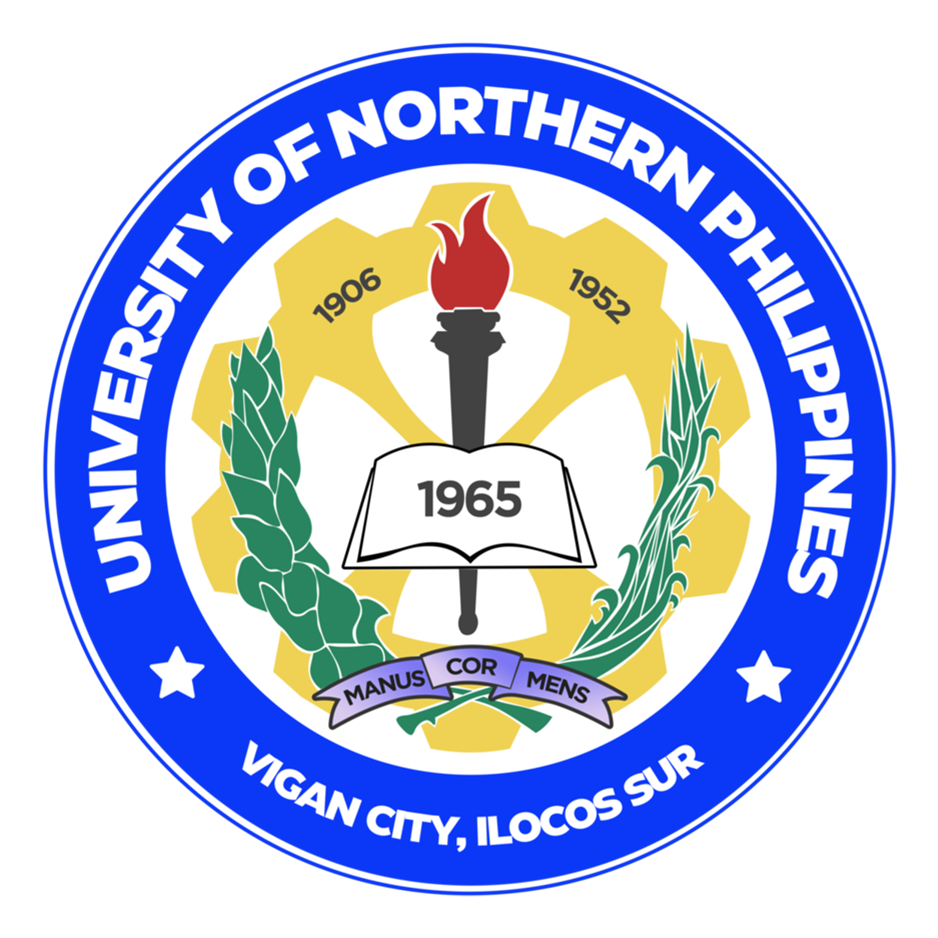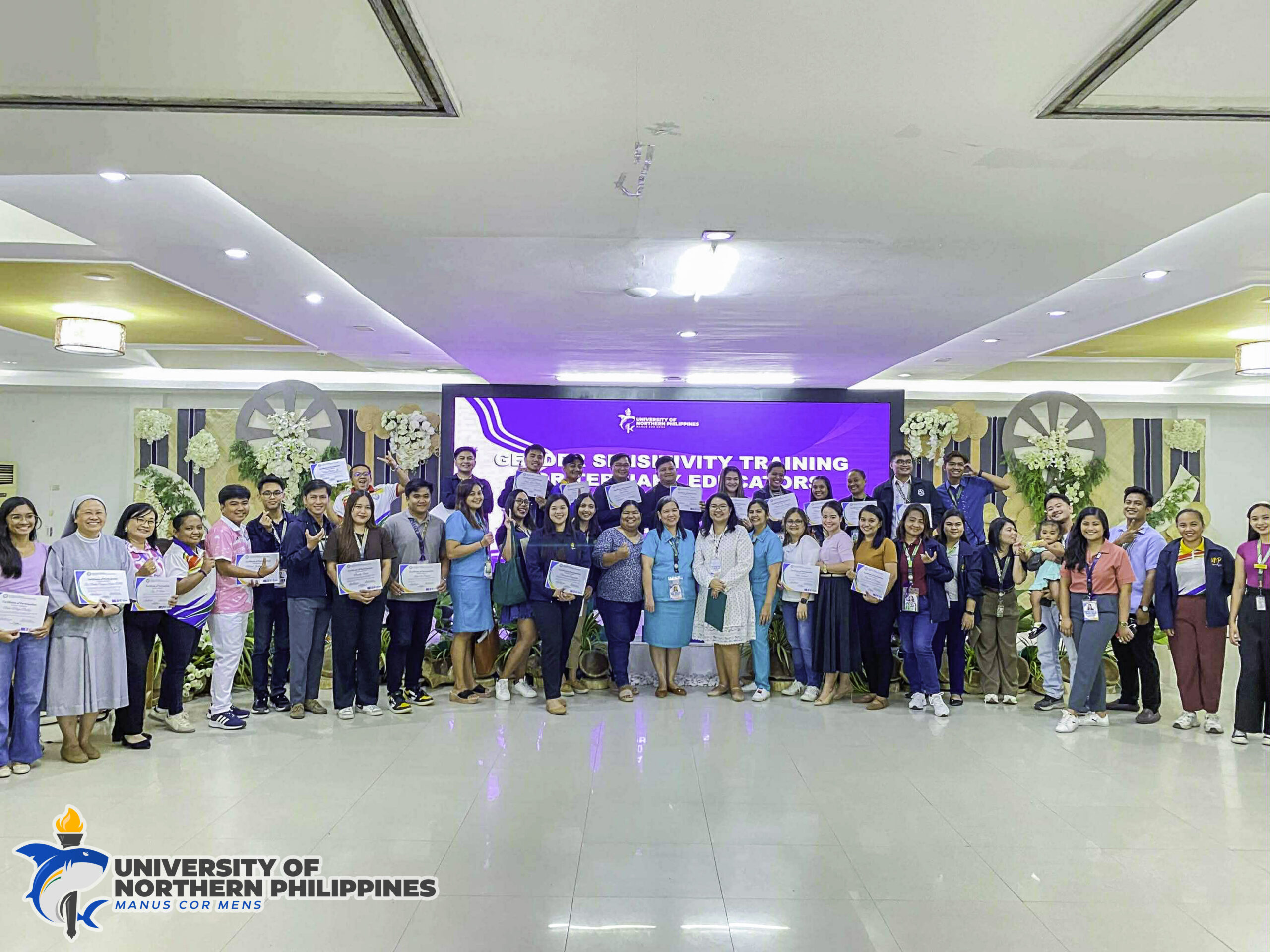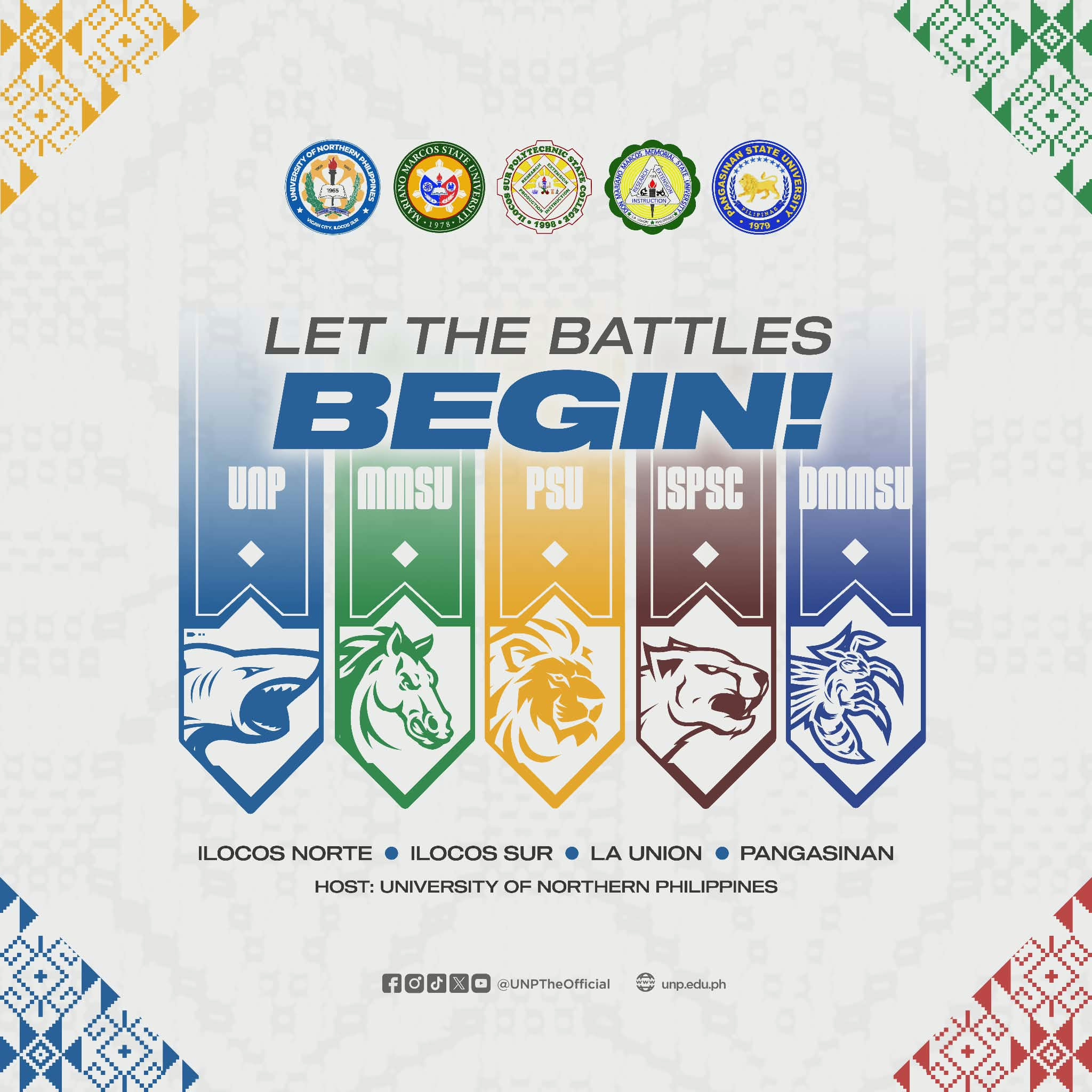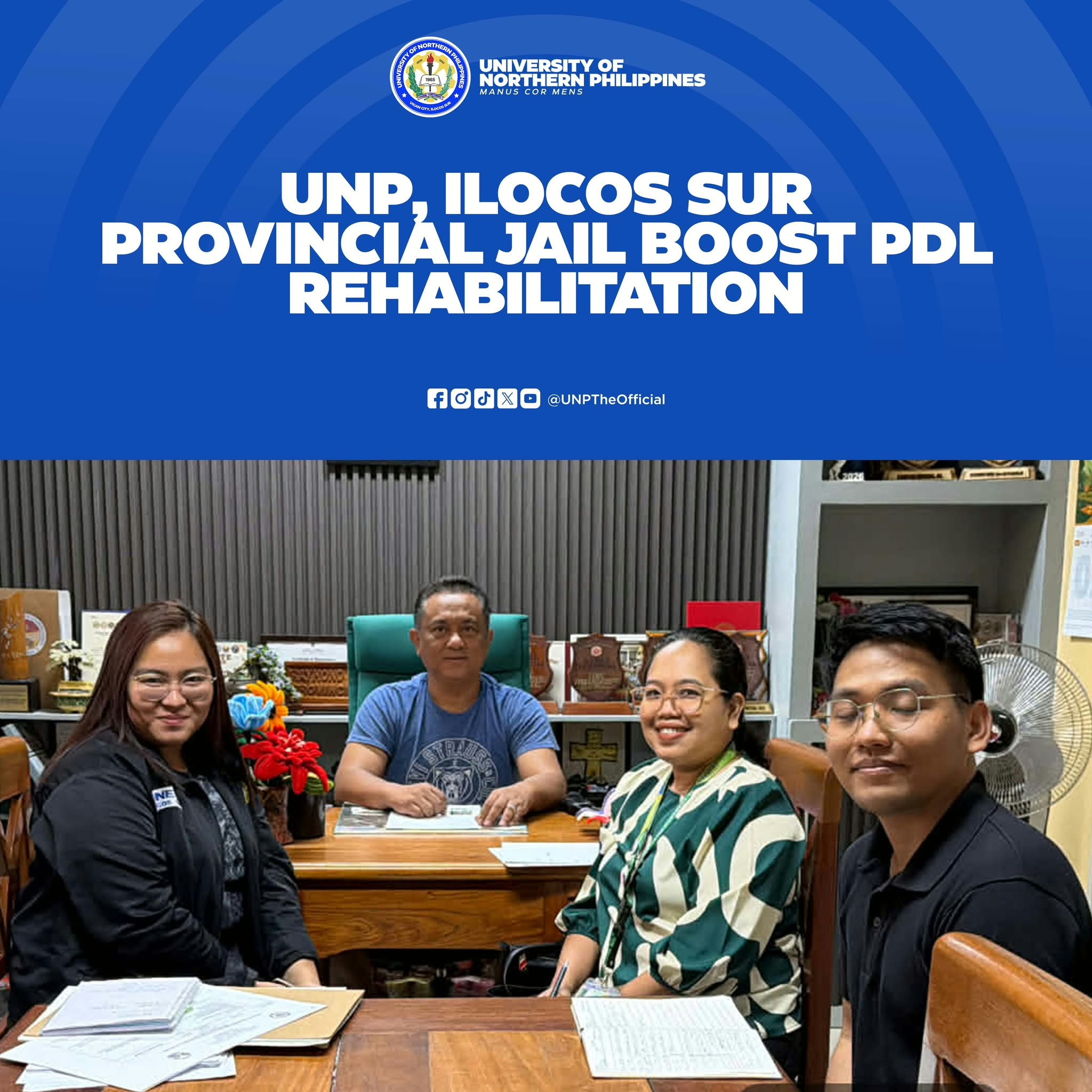The University of Northern Philippines (UNP) Center for Gender and Development spearheaded a three-day Gender Sensitivity Training held from October 20 to 22, 2025, bringing together tertiary educators and gender and development (GAD) advocates from UNP, St. Paul College of Ilocos Sur (SPCIS), and Ilocos Sur Community College (ISCC).
Certified by the Philippine Commission on Women (PCW), the training served as an intensive capacity-building initiative aimed to promote gender equity and inclusivity in higher education. It was designed to deepen participants’ understanding and application of GAD principles within academic and institutional contexts.
The opening program featured an inspiring message from Dr. Rolando Navarro, Vice President for Academic Affairs of UNP, who emphasized the significance of gender sensitivity in shaping a more inclusive learning environment. He noted that gender awareness among educators is fundamental in cultivating respect, equality, and empowerment across all levels of the academic community.
On the first day, Dr. Eleanor Belizar led the session on GAD Basic Concepts, providing participants with a comprehensive introduction to the core principles of gender and development. Her presentation focused on dismantling stereotypes and building awareness of gender roles, biases, and inequalities that persist in educational institutions and society at large.
The second day of the training was highlighted by the presence of University of Northern Philippines President Dr. Erwin Cadorna, who reaffirmed the University’s commitment to advance gender mainstreaming and foster inclusive and equitable learning environments. His message highlighted UNP’s dedication in ensuring that gender sensitivity remains integral to its academic and institutional practices.
The day’s learning sessions featured two dynamic presentations. Dr. Marifel Acena led a discussion on Gender Issues, where she examined real-world cases and institutional challenges that continue to shape gender dynamics in higher education. Following this, Dr. Victoria Arce facilitated a session on Gender and Development, exploring key frameworks and actionable strategies that educators can integrate into teaching, research, and community engagement to strengthen gender responsiveness and advocacy within their institutions.
The third day focused on the legal and institutional frameworks supporting gender equality. Atty. Kathrynn Louise Eder, Officer-in-Charge of the UNP Center for Gender and Development, led the session on Legal Mandates and Policy Imperatives on GAD, providing a detailed overview of laws and government directives that ensure gender-responsive governance and education. Participants later took part in a workshop where they identified gender issues within their respective institutions and proposed actionable measures to address them.
A meaningful gender ceremony concluded the three-day training, serving as a symbolic affirmation of the participants’ shared dedication to promote gender equality and inclusivity within their respective institutions. The ceremony brought together UNP Gender and Development (GAD) personnel, including Atty. Christian Casildo, Prof. Cresalyn Betita, and other staff members, who joined the participants in reaffirming their advocacy for gender-responsive education. To formally recognize the attendees’ active participation and commitment throughout the sessions, certificates of participation were also awarded during the closing program.
In her closing remarks, Atty. Eder expressed her appreciation to all participants and partner institutions for their enthusiasm and collaboration. She emphasized that gender sensitivity is not only a policy requirement but a continuing advocacy that must be lived and practiced daily within the academic community.
The three-day training highlighted the collective effort of Ilocos Sur’s tertiary institutions to promote gender awareness and inclusivity. With the support of the Philippine Commission on Women and the active involvement of educators and advocates, the program reaffirmed the shared vision of building academic spaces that uphold equality, respect, and empowerment for all.




